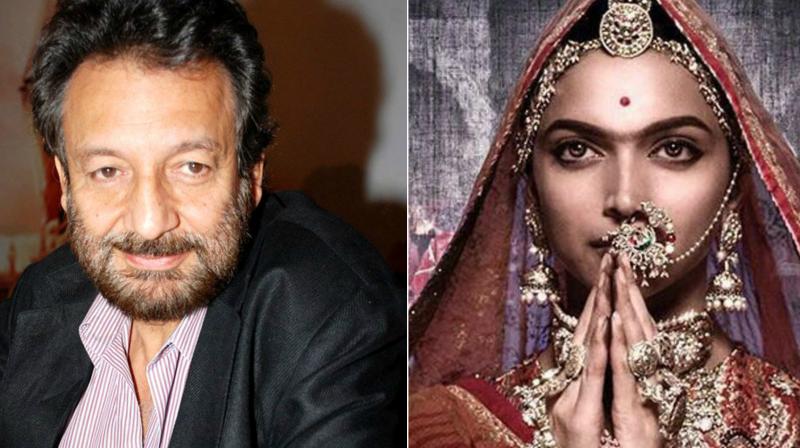Bhansali's intent not to create controversy: Shekhar Kapur on Padmavati
The \"Elizabeth\" ,\"Bandit Queen\" director expressed his support to Sanjay Leela Bhansali's period film Padmavati.

Mumbai: Filmmaker Shekhar Kapur today said Sanjay Leela Bhansali did not make his upcoming film "Padmavati" with an intent to rake up a storm that has the country in its clutches today.
Featuring Deepika Padukone in the title role, Bhansali's period drama is facing the wrath of various Rajput groups and political leaders, who have accused the director of "distorting historical facts".
Addressing a Masterclass at the ongoing International Film Festival of India (IFFI), Shekhar said, "The intention of the filmmaker (Bhansali) was not to create controversy. He is a great filmmaker. But he has never been a political filmmaker. He wanted to make a great film, a big film.
"There is a faction divide in our society, which is very obvious, because India is a society (which) is in absolute and definite flux. All the lines which were drawn once are breaking. The politics has risen around the film but the film has nothing political in it."
The director, who received global acclaim for his films such as "Bandit Queen", and movies on the British monarch Queen Elizabeth I - "Elizabeth" and "Elizabeth: The Golden Age", recalled his run-ins with controversy.
Shekhar said when he was making the first Elizabeth (featuring Cate Blanchett) movie, there were constant statements in the media, criticising him for his portrayal of the queen.
"Here comes an Indian director who has shown our virgin queen in bed with... I said, "It was 400 years ago, how did you know she was a virgin? Were you there every time?" he quipped.
The director said such historical films are merely a "representation" or a "metaphor" of history.
He added, for him, the story of an individual is important if it tells a larger truth of the society today and that is why he chose to tell the story of infamous dacoit Phoolan Devi in "Bandit Queen".
Shekhar also revealed he had "changed" the speech Queen Elizabeth was supposed to have delivered to inspire 5,000 of her troops at Tilbury in wake of an expected invasion by the Spanish Armada.
"Everybody said, 'How come you did that? That's not what she said'. (But) I said, she was sitting on a horse that was frisky. There was a storm coming in. How did 5,000 people listen to her without a loudspeaker? Who said those words? The person standing next to her could not hear what she was saying.
"So she went back to her tent and said, 'This is what I said so write that draft now'."
He said knowledge of history in India is imparted in the form of a "moral tale", not a factual one.
"History is a constant interpretation of facts, I'm not saying it's wrong... This is how history works. In India, till the British came, we believed in mythology, not in history...
"What's our history? Gandhiji today is a saint for us.
He's not a man, he is a great man (mahatma). The sense of history in India is a moral tale, it's not a factual tale...
And who's saying that's wrong? That's probably right. Why else is history relevant? Either it has to have a relevance to our society today so we make it relevant by making it into a moral tale," he said.

